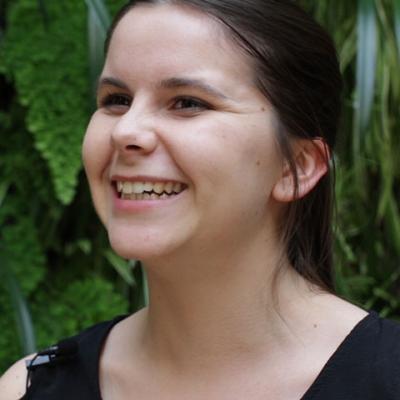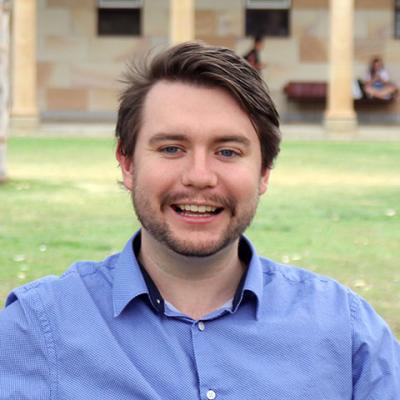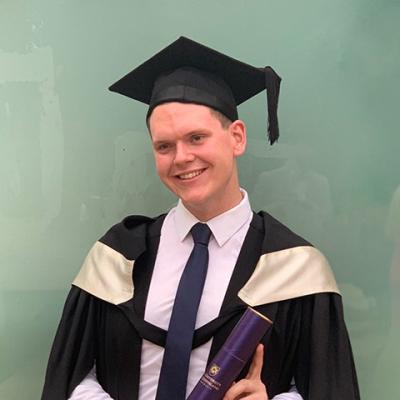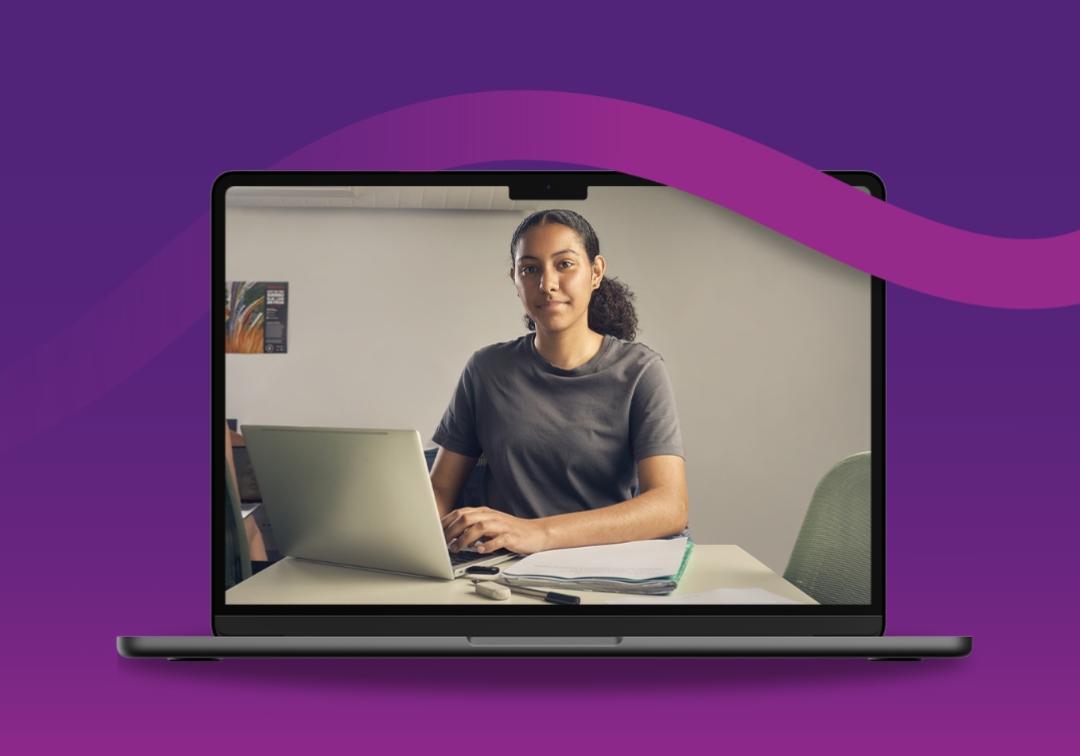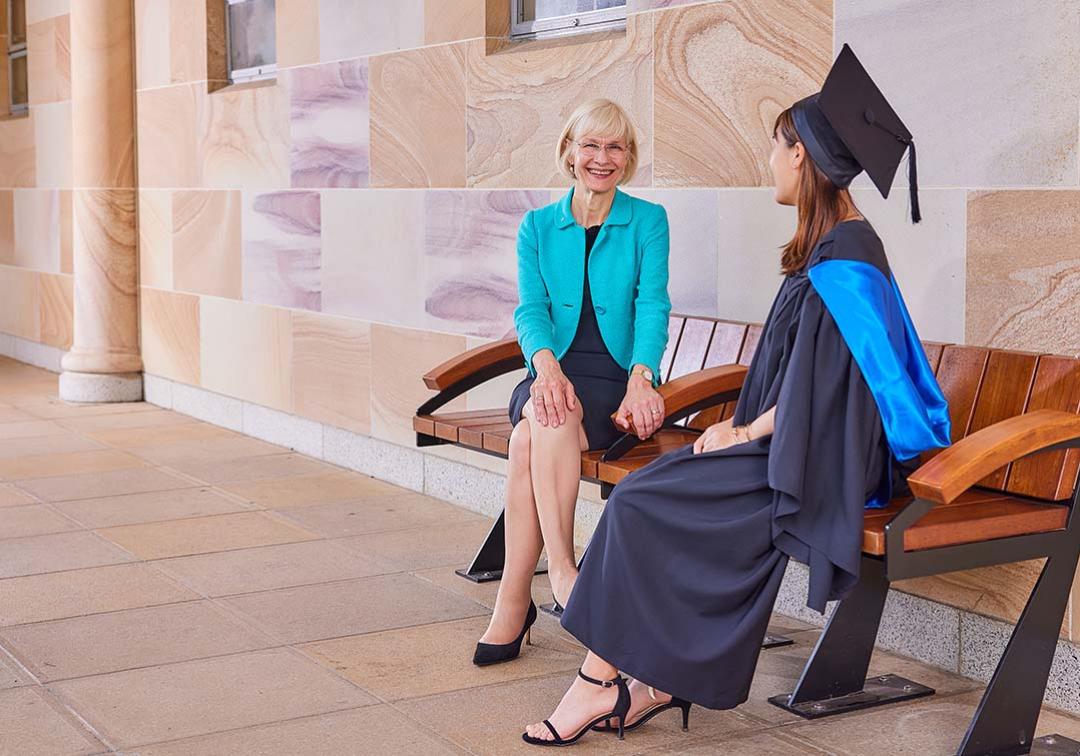
Bachelor of Education (Secondary)
Overview
Become a secondary school teacher. Guide our future leaders and ignite the minds of the next generation.
Our secondary education degrees combine university study with practical experience. You'll explore how to teach and how people learn, study topics from 2 teaching areas, then apply your knowledge in the classroom.
Throughout your program you’ll be immersed in hands-on workshops, school visits and supervised placements, and gain a strong understanding of day-to-day life in a secondary school.
To make sure you get both the teaching skills and the specialist subject knowledge you need to become an expert teacher, you will study the Bachelor of Education (Secondary) as a dual degree with one of the following:
- Bachelor of Arts
- Bachelor of Science
- Bachelor of Music
- Bachelor of Mathematics
- Bachelor of Business Management
Program highlights
- Wide range of teaching areas (30+ majors to choose from).
- More than 93% of graduates offered teaching jobs.
- Practical classroom experience from your first year of study.
- Opportunity for rural and regional placements.
- Qualify to teach in 2 teaching areas (with the exception of Music specialisation).
How you'll learn
Your learning experiences are designed to best suit the learning outcomes of the courses you choose.
- Lectures
- Tutorials
- Work placements
- Fieldwork
- Workshops
Placements and work experience
Students undertaking a Bachelor of Education (Secondary) dual program must complete a minimum of 80 days of supervised and assessed professional experience throughout the program.
Every effort is made to place students within a reasonable distance of their home base, but they can be expected to travel up to 90 minutes due to public transport connections and incur costs associated with travel and possible lost income over this period.
Students are generally placed at Ipswich, Brisbane, and southeast Queensland and are encouraged to explore the option of a rural placement. Financial assistance may be available to assist with travel and accommodation costs for rural placements.
Students are required to have a current Blue Card (Working with Children Check) before commencing practicum. Students can apply for a Blue Card through the School of Education and should do so three months before their practicum is due to commence. The Professional Experience Handbook for this program provides information about practicum and school experience requirements. Please visit the School of Education website to access required resources.
What you'll study
At UQ, degrees are called 'programs' and subjects are called 'courses'. Here's a sample of the courses you could study in this program:
- Learning and Development for Educators
- Literacies within and across the Curriculum
- Indigenous knowledge and education
- Teachers as Educational Innovators and Agents of Change
Dual programs
The Bachelor of Education (Secondary) can only be studied as part of a dual program. Choose from:
Career possibilities
Our programs prepare you for your first job and beyond. Here are some of the careers you could be on your way to:
- Secondary school teacher
- Education advocate
- Education project or policy officer
- Private tutor
Graduate salary
Teacher education (undergraduate)
compared.edu.au
Next steps after graduation
You’ll be eligible to apply for registration as a teacher with the Queensland College of Teachers, and to work as a secondary school teacher in state and independent schools in Australia and worldwide. 93% of our graduates are offered teaching jobs.
If you complete a specialisation in music or a language (Chinese, French, German, Japanese or Spanish), you can also teach in primary schools.
Further study and experience can lead to roles as a head of department, principal, guidance officer, learning support teacher or student adviser.
Other graduates choose to work with non-school-based education providers (such as tutoring companies), government agencies or education advocacy organisations.
Professional memberships
When you graduate, you may be eligible for memberships with the following professional organisations. Contact the organisation to find out how to become a member.
- Queensland College of Teachers
Professional registration
When you graduate, you may be eligible for registration with the following professional organisations. Contact the organisation to find out how to register.
- Queensland College Of Teachers
Events
See all events
15 December
Postgraduate educational studies information webinar
Stories
See all stories
Careers
Considering a career change from teaching?
5-minute read
Stories
See all stories
UQ people
Education without borders: Claudia’s vision for inclusive education starts at UQ
2-minute read

Careers
Considering a career change from teaching?
5-minute read
Entry requirements
Prerequisites
Bachelor of Education (Secondary):
Queensland Year 12 (or equivalent):
- General English subject (Units 3 & 4, C); and
- one of General Mathematics, Mathematical Methods or Specialist Mathematics (Units 3 & 4, C).
- Applicants must also satisfy all entry requirements for the other component of the dual degree (refer to relevant dual program - Bachelor of Arts, Bachelor of Business Management, Bachelor of Mathematics, Bachelor of Music or Bachelor of Science).
Prerequisites
Bachelor of Education (Secondary):
Queensland Year 12 (or equivalent):
- General English subject (Units 3 & 4, C); and
- one of General Mathematics, Mathematical Methods or Specialist Mathematics (Units 3 & 4, C).
- Applicants must also satisfy all entry requirements for the other component of the dual degree (refer to relevant dual program - Bachelor of Arts, Bachelor of Business Management, Bachelor of Mathematics, Bachelor of Music or Bachelor of Science).
English language requirements
IELTS score of 7.5 overall; speaking 8; listening 8, reading 7, writing 7. For other English Language Proficiency Tests and Scores approved for UQ.
TOEFL iBT (Paper Edition), PTE Academic, BE, CES, and OET are not accepted.
There are other ways to meet the English language requirements. For some programs, additional conditions apply.
Student visas
International students who are accepted into full-time study in the Bachelor of Education (Secondary) are eligible to apply for an Australian student visa (subclass 500).
There are a number of requirements you must satisfy before a visa is granted, including the Genuine Student (GS) requirement.
Additional application information
All students are required to successfully meet the Literacy and Numeracy Test for Initial Teacher Education (LANTITE) standards prior to graduation. Please contact the School of Education for further details (education@uq.edu.au) or visit the School of Education office. For more information on the test including sample tests, indicative fees, testing institutions and registration information, please visit the School of Education LANTITE website and the Australian Council for Educational Research (ACER) website.
Additional application information
All students are required to successfully meet the Literacy and Numeracy Test for Initial Teacher Education (LANTITE) standards prior to graduation. Please contact the School of Education for further details (education@uq.edu.au) or visit the School of Education office. For more information on the test including sample tests, indicative fees, testing institutions and registration information, please visit the School of Education LANTITE website and the Australian Council for Educational Research (ACER) website.
Fees and Scholarships
Indicative annual fee
Fee information can be found on these pages:
- Bachelors of Science / Education (Secondary)
- Bachelors of Arts / Education (Secondary)
- Bachelors of Business Management / Education (Secondary)
- Bachelors of Music / Education (Secondary)
- Bachelors of Mathematics / Education (Secondary)
The Bachelor of Education (Secondary) is only offered as a dual program.
Fee information can be found on these pages:
- Bachelors of Science / Education (Secondary)
- Bachelors of Arts / Education (Secondary)
- Bachelors of Business Management / Education (Secondary)
- Bachelors of Music / Education (Secondary)
- Bachelors of Mathematics / Education (Secondary)
The Bachelor of Education (Secondary) is only offered as a dual program.
Additional costs
- There may be additional course costs associated with travel or materials.
- Students are expected to fund travel and living expenses associated with placements, some of which may be outside the Brisbane metropolitan area.
- All students are required to successfully meet the Literacy and Numeracy Test for Initial Teacher Education (LANTITE) standards prior to graduation.
- Students are responsible for the cost of the LANTITE (approximately $196 or $98 per test). ACER website (https://teacheredtest.acer.edu.au) lists current fees.
- Please contact the School of Education for further details (education@uq.edu.au) or visit the School of Education office.
- For more information on the LANTITE tests, including sample tests and registration information, please visit the Australian Council for Educational Research website: https://teacheredtest.acer.edu.au
- Students are responsible for the cost of transportation and accommodation to attend residential schools or practicals.
Government assistance
Financial aid
As an international student, you might be eligible for financial aid – either from your home country, or from the Australian Government.
HECS-HELP
Domestic places in the Bachelor of Education (Secondary) are Commonwealth supported, as long as you meet all Commonwealth supported place eligibility requirements.
This means the cost of your education is shared between you and the Australian Government. Instead of tuition fees, Commonwealth supported students pay what are called student contribution amounts.
If you have a Commonwealth supported place, you may also be eligible for HECS-HELP. This is an Australian Government loan scheme to assist eligible students with the cost of their student contribution amounts.
Centrelink support
The Australian Government offers a number of income-support payments to eligible Australian university students.
Scholarships
You may be eligible for more than 100 scholarships, including:
How to apply
Applying online
To study the Bachelor of Education (Secondary), apply for one of the following:
- Bachelors of Science / Education (Secondary)
- Bachelors of Arts / Education (Secondary)
- Bachelors of Business Management / Education (Secondary)
- Bachelors of Music / Education (Secondary)
- Bachelors of Mathematics / Education (Secondary)
The Bachelor of Education (Secondary) can only be studied as a dual degree.
Applying through QTAC
To study the Bachelor of Education (Secondary), apply for one of the following:
- Bachelors of Science / Education (Secondary)
- Bachelors of Arts / Education (Secondary)
- Bachelors of Business Management / Education (Secondary)
- Bachelors of Music / Education (Secondary)
- Bachelors of Mathematics / Education (Secondary)
The Bachelor of Education (Secondary) can only be studied as a dual degree.
Important dates
If you’re studying Year 12 in Australia, go to the QTAC website to check the closing date for this program.
If you’re applying to UQ, the closing date for this program is:
- To commence study in semester 1 - November 30 of the previous year.
Visa processing times vary. Apply and accept your offer as early as you can.
To learn more about UQ dates, including semester start dates, view the Academic Calendar.
Aboriginal and Torres Strait Islander applicants
For support with applying – or if you have any questions about university life – get in touch with our Aboriginal and Torres Strait Islander Studies (ATSIS) Unit.
Explore other programs
Express yourself. And your interest.
They say choosing a degree is hard, which is why we've made it easy. Register your interest and we'll send you everything you need to know about applying to UQ.



